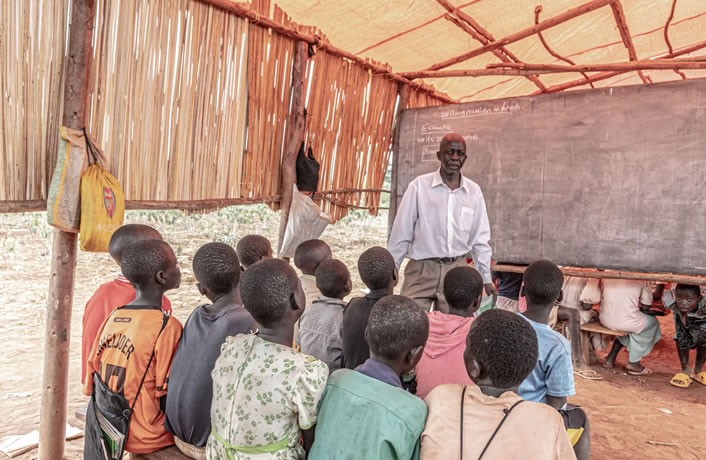Joy of the Lord Primary School sits humbly in Kagumba village. The name is hopeful, even triumphant. But the reality is heavy.
Founded in 2018, the school shuttered during the COVID-19 pandemic. Like many rural schools, reopening wasn’t simply a matter of lifting lockdowns. Government regulations, infrastructure requirements, and lack of financial support all stood in the way.
Today, 200 children attend classes in buildings held up by timber, covered by iron sheets, and open to wind, rain, and dust. One building doubles as a church on Sundays. Classes range from nursery to Primary Six, but there are no desks. There is no floor. There are no books.
Children pay between 25,000 to 35,000 UGX per term. But Uganda has a free education policy—or so we’re told. On paper, the promise exists. On the ground, the gap is glaring.
Education here isn’t just about access; it’s about inequality. And yet, these children show up. With borrowed pencils and wide-eyed determination.
Rural schools like Joy of the Lord remind us: policy without implementation is just paperwork. It’s time we revisited the promises made—and made them real.

